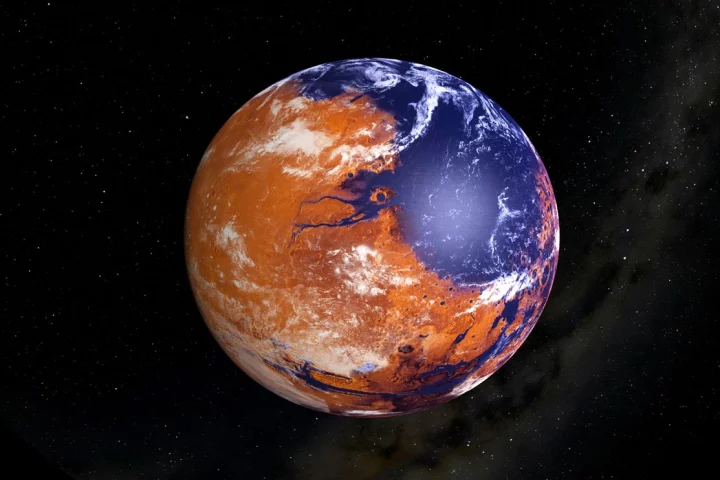Mars
-
NASA's beleaguered Mars Sample Return mission may get a reprieve from an unexpected source. Lockheed Martin has proposed a streamlined, lower-cost alternative that could slash the mission’s price tag by more than half.
-
NWA 16788 was ejected from its own planet by a massive asteroid collision, wandered around in space for ages, before landing on Earth 140 million miles from where it started. And it could be yours (if your pockets are deep enough).
-
The release of NASA's latest budget reveals the Orion spacecraft and Lunar Gateway space station are getting the chop. The US$18.8-billion total figure decreases spending by $6 billion, or 24%, as the space agency increases funding for crewed Moon and Mars missions.
-
The question of whether life once existed on Mars may be answered by a new laser instrument from the University of Bern. The device can be carried by a rover to zap samples of the Red Planet to see if they contain traces of microfossils.
-
Next time you're driving around on Mars and need to get your tire replaced, chances are good it'll look something like a revolutionary new version made by NASA and Goodyear. The mesh cage design can take a beating and roll right on.
-
2024 has been a year in space that has seen successes, failures, a clutch of firsts, and some goodbyes – not to mention a long-distance probe rescue, spacesuits on the catwalk, and a couple of cosmic oddities. Let's have a look back.
-
Future space helicopters may benefit as NASA completes history's first interplanetary aircraft crash inquiry. The yet-to-be-released technical report explains why the space agency's Ingenuity Mars helicopter crashed on January 18, 2024.
-
Everybody from NASA to David Bowie has wondered if there’s life on Mars – and now we might have a precise place to look for it. A new Caltech study has shown that photosynthetic microbes could thrive in a small habitable zone beneath the ice.
-
Data from NASA's Curiosity rover collected on Mars is shedding new light on how the Red Planet became uninhabitable in the distant past due to a changing climate that caused the surface water to evaporate or be locked away as ice.
-
SpaceX founder Elon Musk says that the first of his company's Starship spacecraft will set off for Mars in two years and the first crewed missions will follow in 2028. He sees this as part of his plan to make humanity an interplanetary species.
-
The good news is that there's a vast ocean of water under the surface of Mars – enough to cover the entire planet to a depth of a mile (1.6 km). The bad news is that this repository is so deep and unreachable that it might as well be in another galaxy.
-
When you live on the Moon, your only option for commuting back to Earth or on to Mars will be some kind of rocket. But each launch will kick up a hellstorm of debris. Building walls to contain the mess could be a perfect job for autonomous rovers.
Load More











